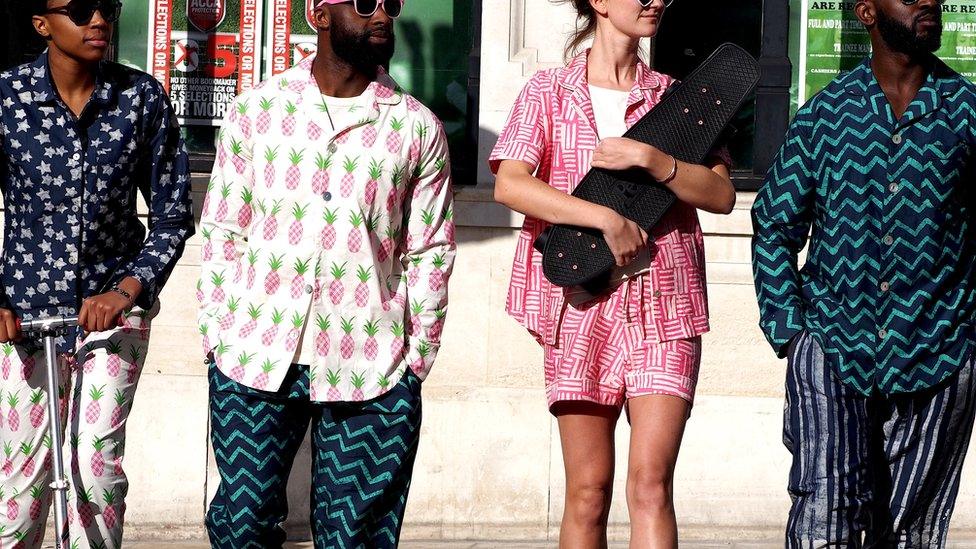Nigeria: Teens upcycle rubbish in modern fashion show
- Published
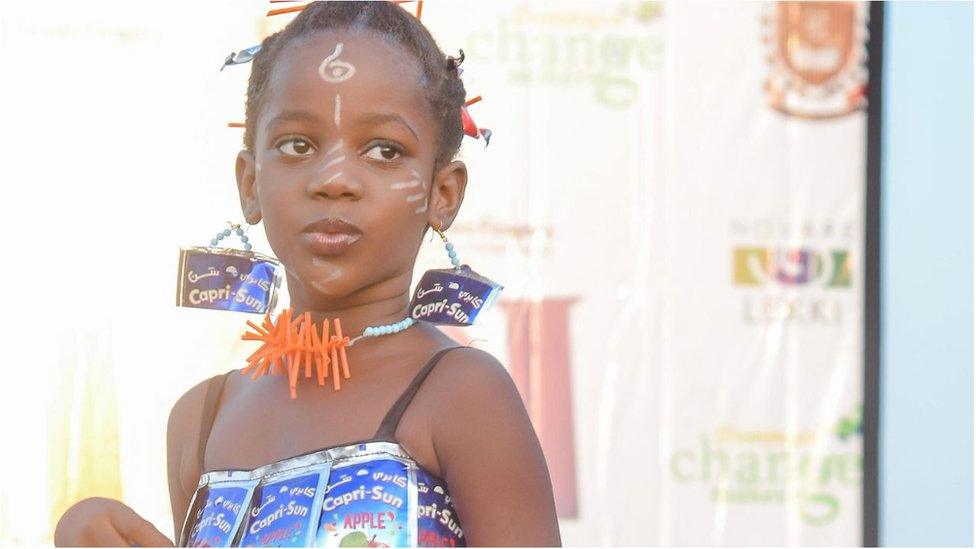
More than 88% of the plastic waste generated in Nigeria is not recycled, says National Library of Medicine
What would you usually do with your old newspapers, carrier bags and Capri-Sun juice packets?
For most people, the answer is throw them in the bin - but not one Nigerian conservation group, which worked with young activists and models to transform the rubbish into "trashion".
The show aimed to encourage recycling and promote sustainable fashion.
Currently, fashion accounts for up to 10% of global carbon dioxide output, according to the United Nations.
Greenfingers Wildlife Conservation has been leading community clean-ups in Nigeria's biggest city, Lagos, since 2012.
But on Saturday, they turned their attention to the catwalk and created a show as a new way to advocate for waste reduction.
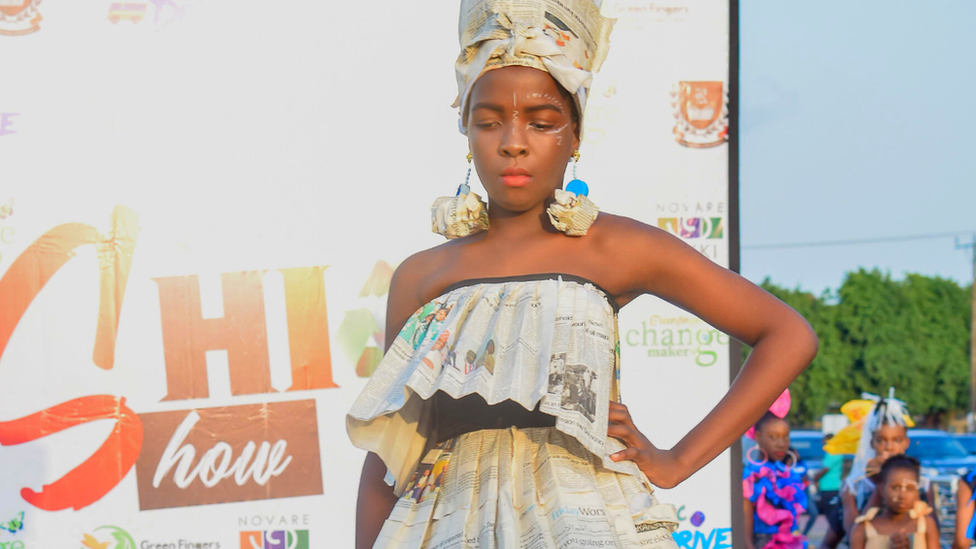
The audience were "curious and excited" by what they saw on the catwalk, a founder of the conservation group said
Chinedu Mogbo, founder of Greenfingers Wildlife Conservation, external, said there was not enough education about pollution and climate issues and so events like the trashion show were the perfect vehicle to entertain and educate.
"We want young people to be a part of the advocacy for life on land and in water," explained Mogbo, who has already set himself the aim of recycling as many plastics as possible "one community at a time".
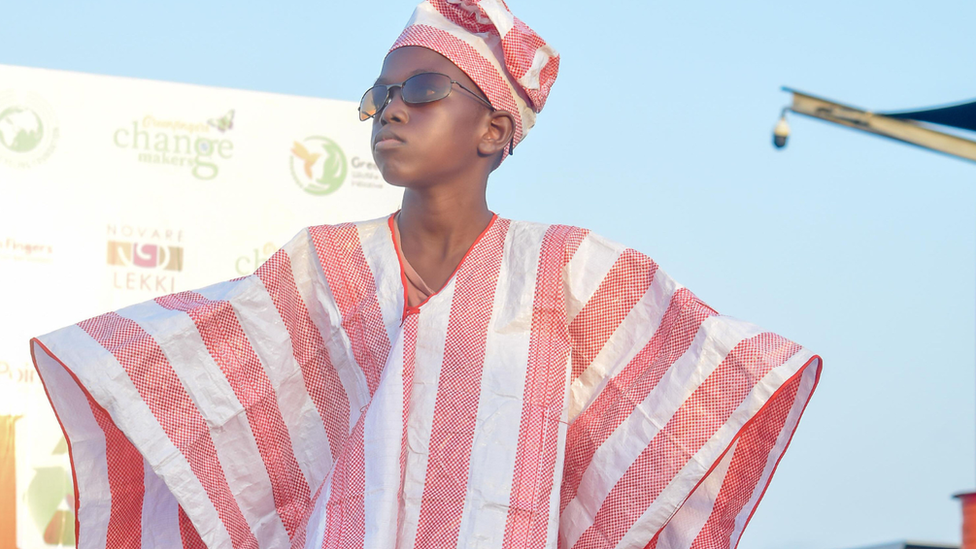
A bag that would have once been used to carry shopping has now been transformed into a fashionable garment
But recycling in Nigeria is not easy: Waste management and waste disposal are concerns, as rubbish is often collected at one point and discharged at another point - meaning it's not disposed of effectively.
So the trashion show was one way to take his rubbish collections "a step further" and reuse some of the waste which "wasn't recycled before", he said.
Chinedu believes that "Nigeria's priority is on their use of oil", and the idea of "sustainability is just gaining ground gradually".
The waste - which was collected during the group's regular rubbish clean-ups at drainage ditches, beaches and across communities - eventually found its way onto the runway as part of the show.
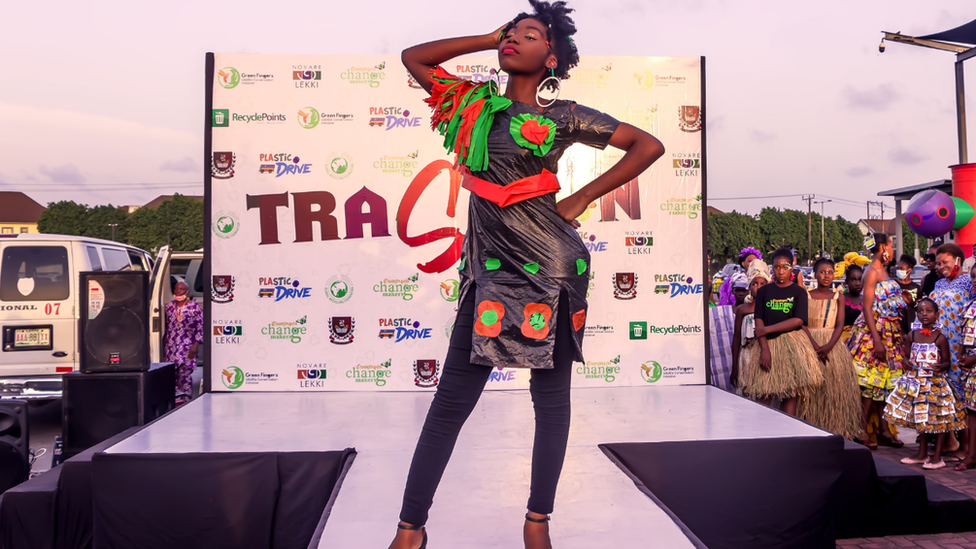
Greenfingers Wildlife Conservation says Nigeria is losing its biodiversity at an alarming rate
And it seems those who took part were inspired by the looks they created.
"I decided to take part in this year's show because I really want to make change[...] we can see that we are all being affected by the climate change, so I really want to make a difference," said 16-year-old model, Nethaniel Edegwa.
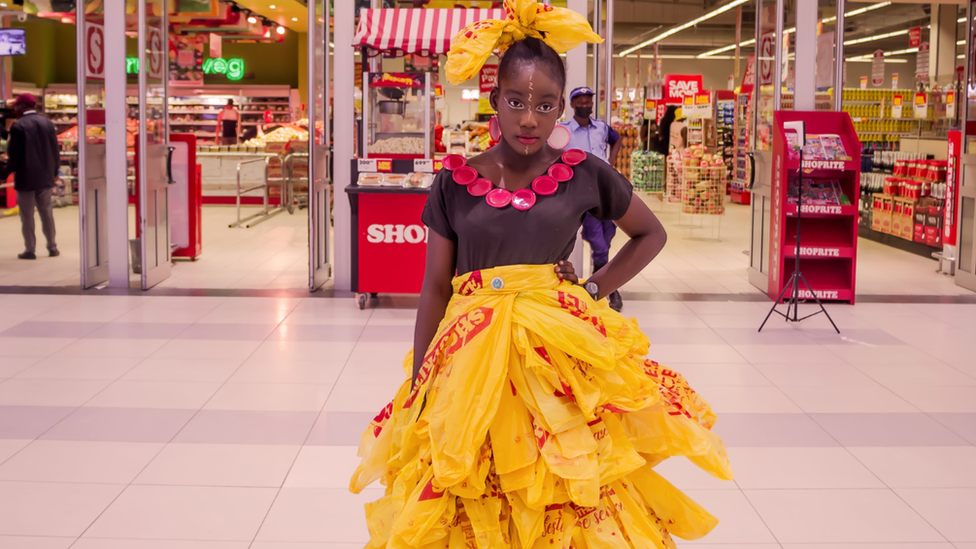
Plastic bottles, dustbin bags, bottle caps and plastic roofing materials are some of the resources that were used in the show
- Published16 November 2022
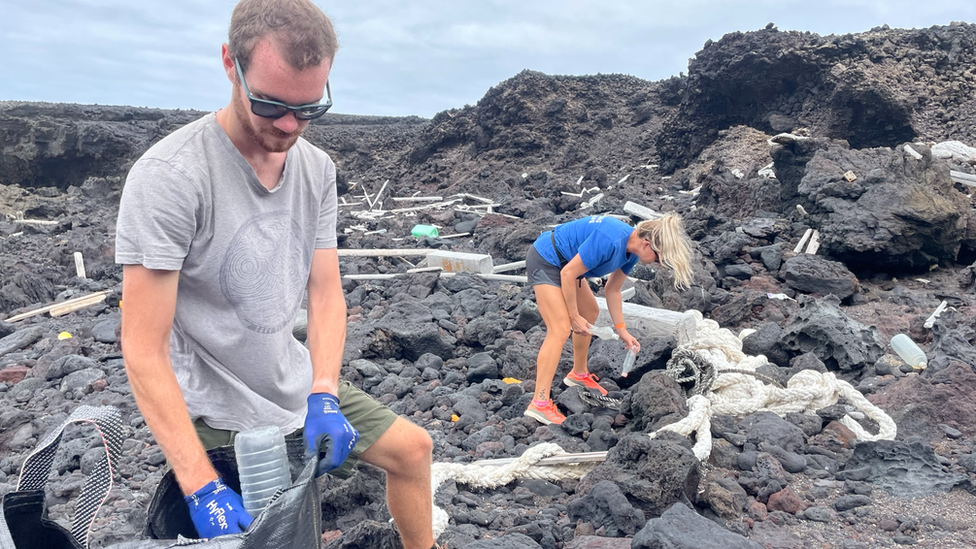
- Published20 October 2018
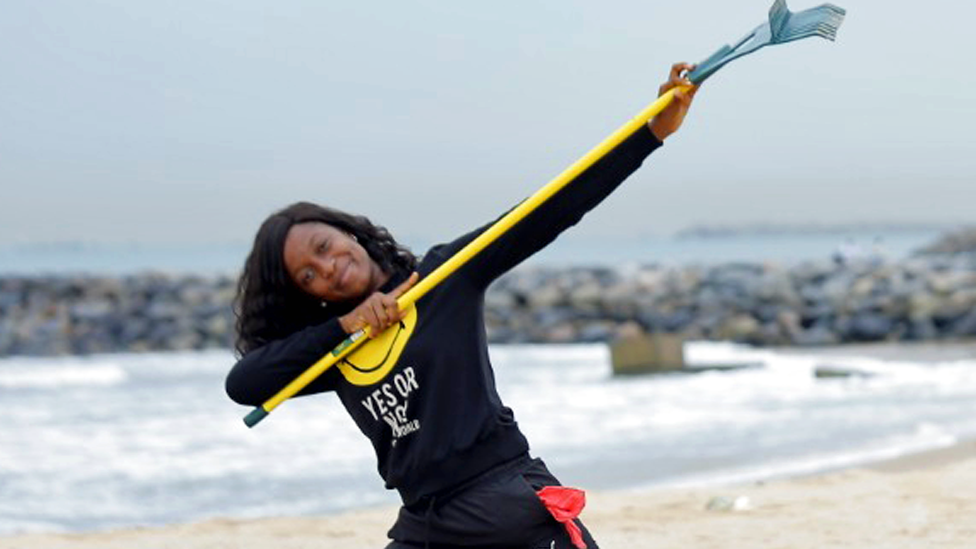
- Published1 November 2019
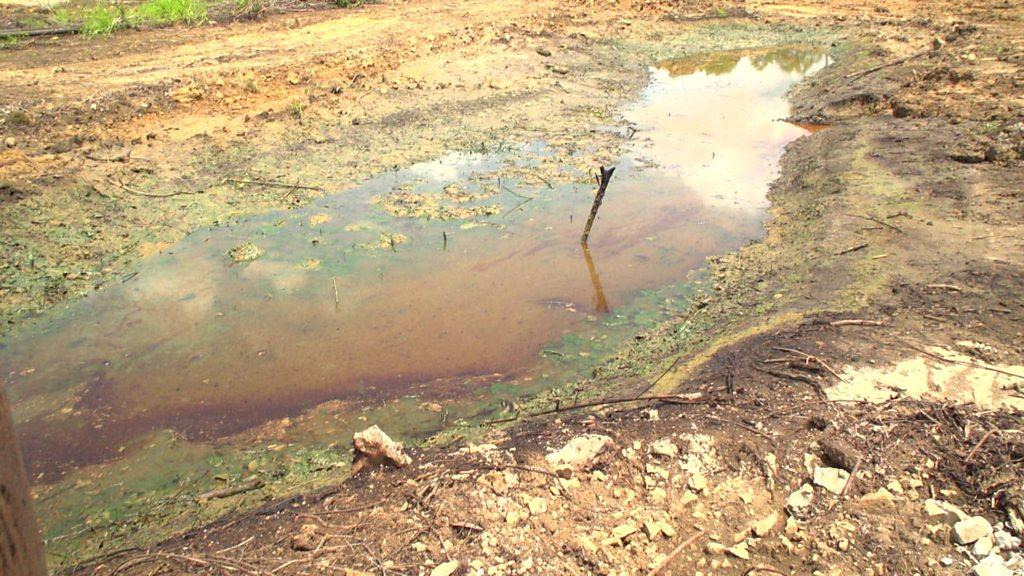
- Published27 November 2018
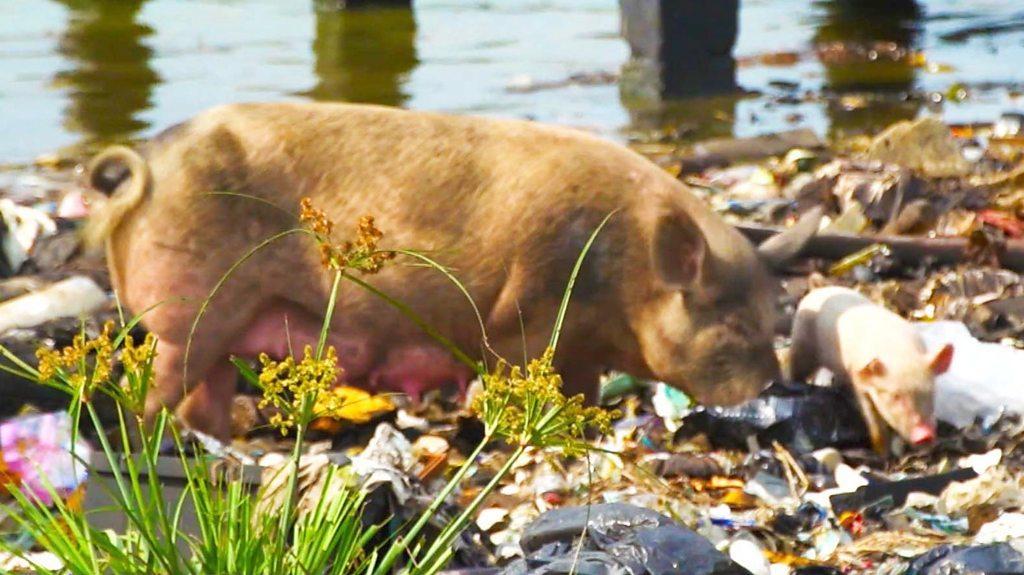
- Published17 November 2018
